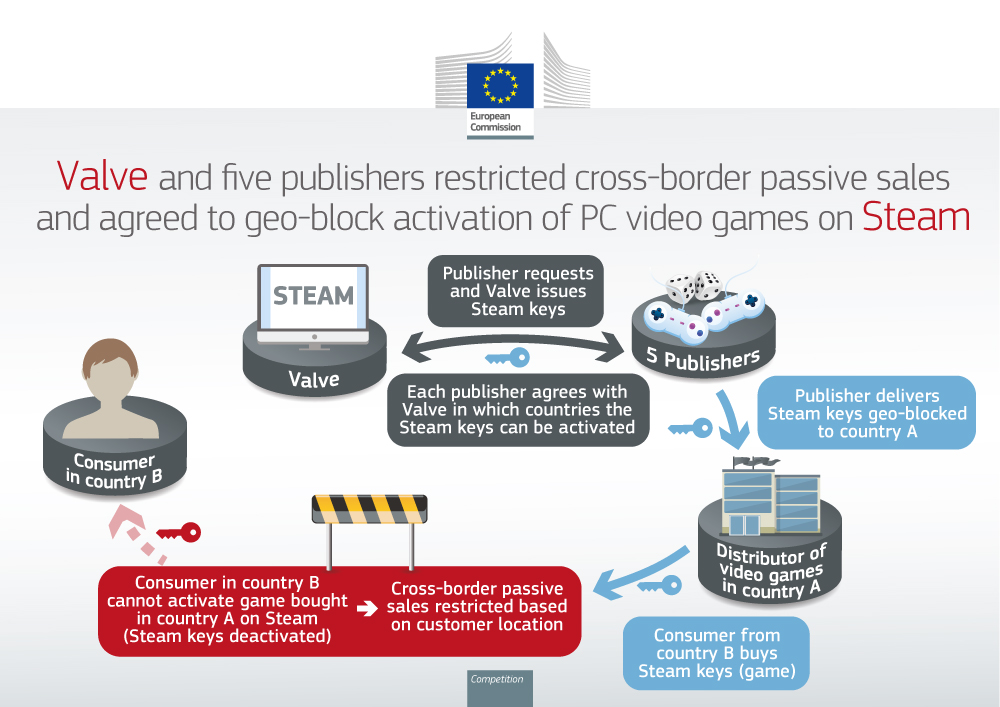Valve’s location-based blocking on Steam (geoblocking, when games were made unavailable in certain countries) was done to protect publishers’ royalties and Valve’s profit margin, but this justification did not convince the court (they did not think it was pro-competitive).
In 2021, the court already ruled similarly when it found that Valve and five PC publishers had illegally blocked cross-border game sales on PCs. On September 27, the same ruling was handed down, so Valve, Bandai Namco, Capcom, Focus Home Interactive (now Focus Entertainment), Koch Media (Plaion), and Zenimax (Microsoft…) entered into anticompetitive agreements or concerted practices that resulted in geoblocking and made it impossible to buy their games in certain countries between 2010 and 2015.
The case dates back to 2017 when the European Commission launched an investigation because of “breaking EU competition rules by unfairly restricting retail prices or by excluding customers from certain offers because of their nationality or location.” One of the main elements of the EU is the common market, so it’s understandable where laws were broken, and Steam was doing just that before 2015. Keys from certain member states could not be activated elsewhere! In 2019, the EU sent out its concerns to Valve and the five other companies, busting everyone for geoblocking, then in 2021 handed out fines totaling €7.8 million (Focus Home was slapped with €2.88 million and Bandai Namco €340k), and Valve appealed the €1.6 million fine for providing certain technical features at the request of publishers while not wanting to interfere in markets.
This explanation was rejected by the court by saying that although copyright should indeed pay its owner money, it should not always get the highest amount. They argued that geoblocking did not ensure competition (Valve argued that poorer regions would have seen price rises). Therefore, it sounds like Gabe Newell’s company will be asked to pay… although it is pocket change for them.
Source: PCGamer

















Leave a Reply